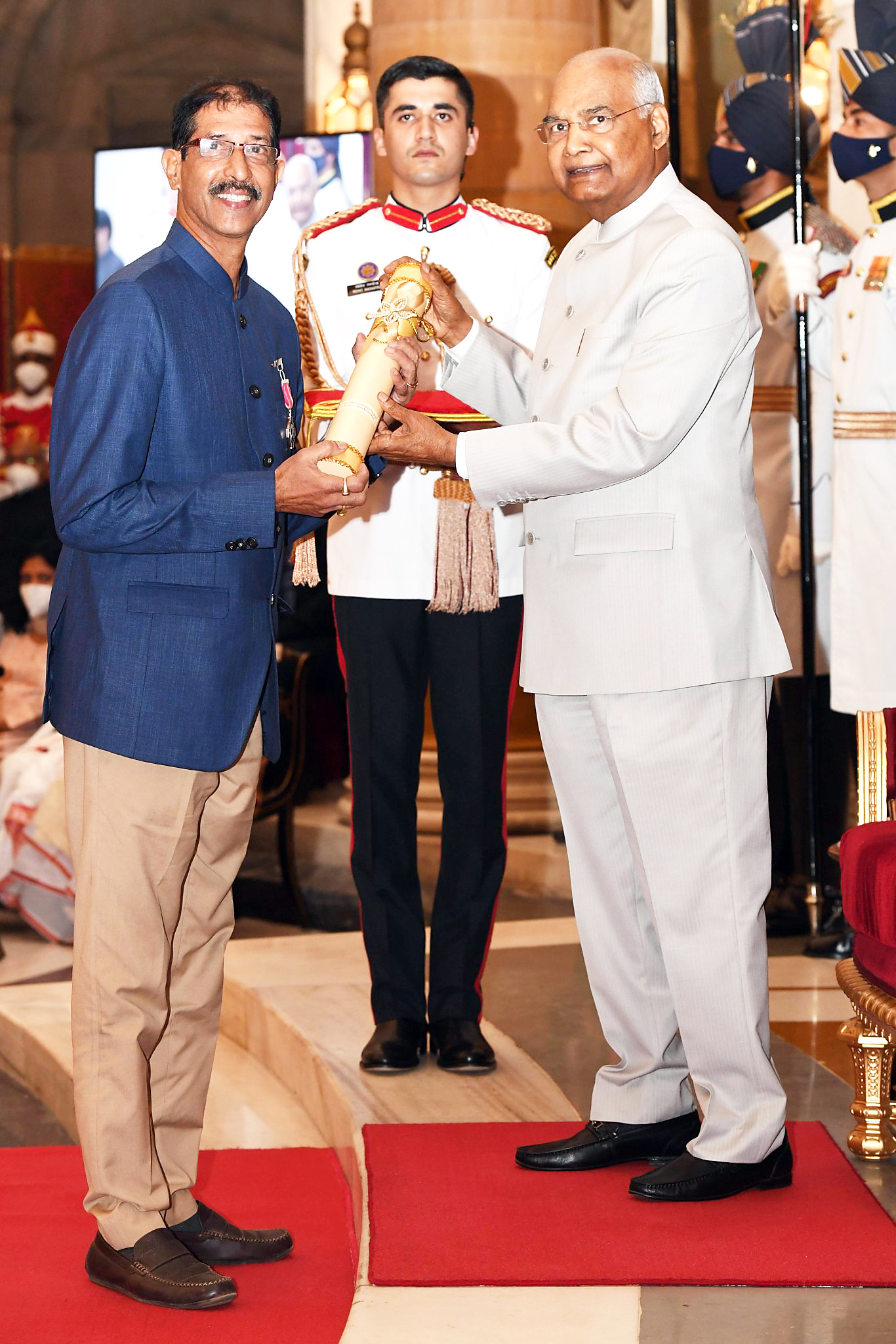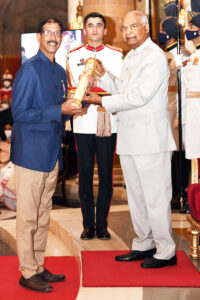A left arm injury couldn’t stop football legend Brahmanand Sankhwalkar from being part of India’s Asian Games team. Here’s an inspiring tale of India’s greatest Goalkeeper
A broken left arm had shut him out of the game for about eight months until he made an incredible comeback that fetched him respect for his iron will and determination. An injury is not an impediment. And, he proved it well! What is to be noted is that the story of this tough recovery dates back to the 1980s, when sports medicine and physiotherapy was not as advanced as it is today. The protagonist of this awe-inspiring tale of recovery is Goa’s football stalwart and one of India’s finest goalkeepers, Brahmanand Sankhwalkar. A legend of the sport, Sankhwalkar’s stellar football career lasted for about 25 years. A Padma Shri recipient—India’s fourth highest civilian award—Sankhwalkar was the captain for India’s men’s football team from 1983 to 1986.

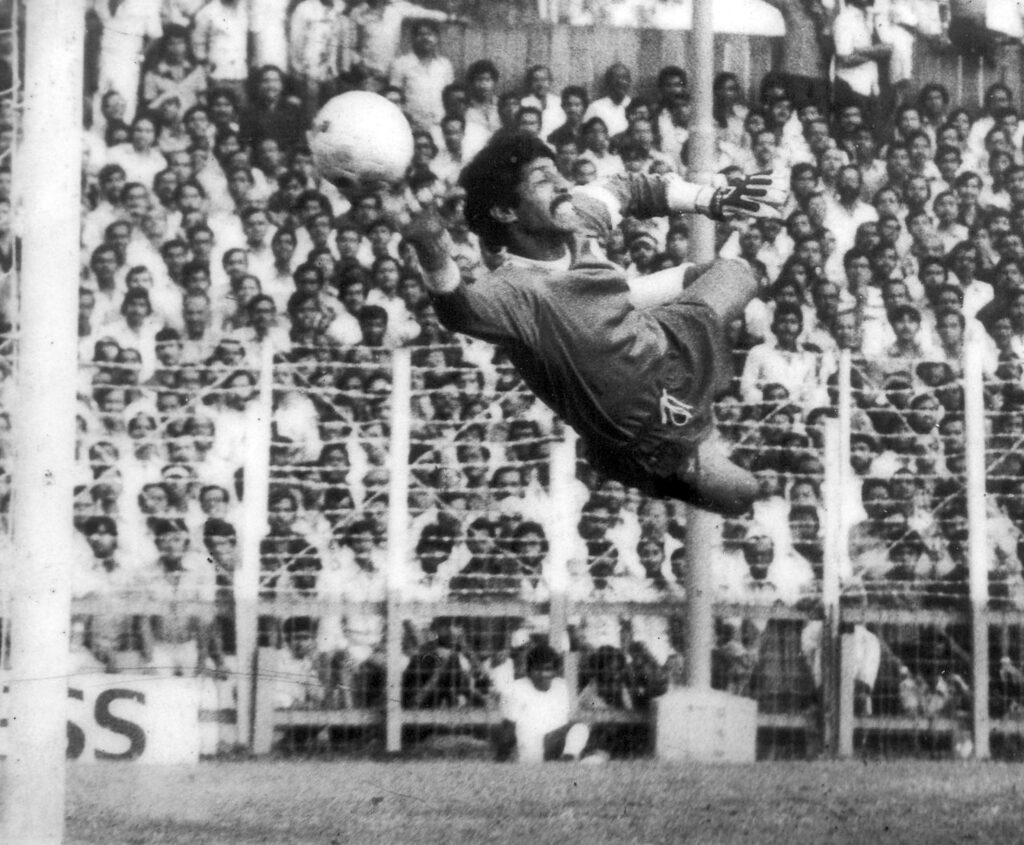
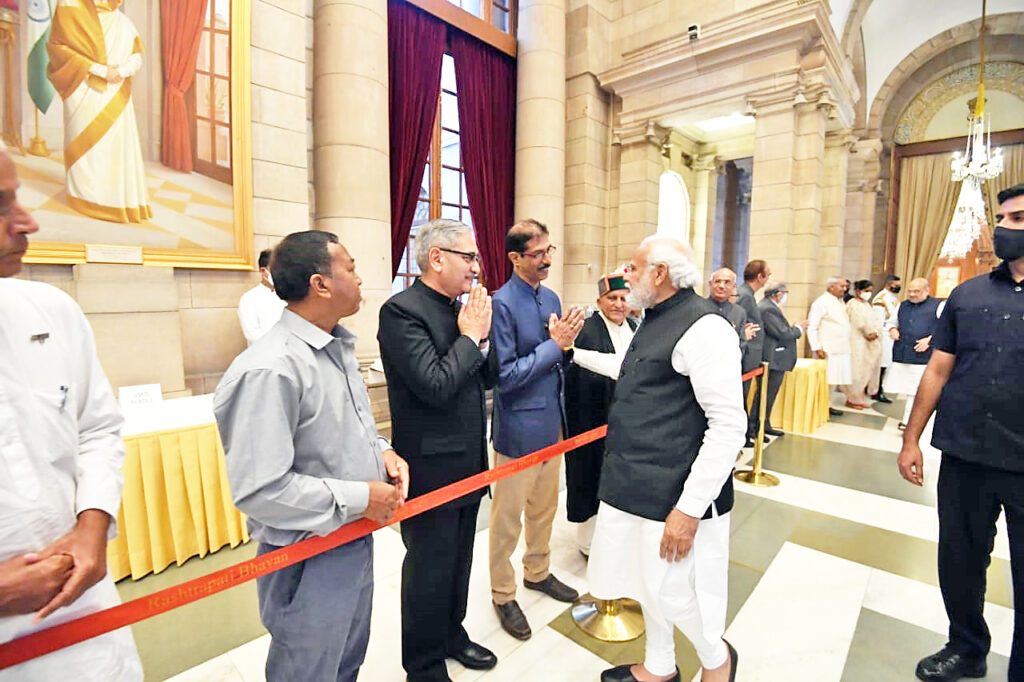
Making his debut with the national team in 1975, Sankhwalkar played in the AFC Youth Championship in Kuwait that year and never looked back. He went on to get at least 50 national caps. But, before he could make it to the Asian Games Indian team, destiny played its own game twice. In 1978, he suffered from severe jaundice and missed the opportunity to represent India in the Asian Games. Barely a month before the Games, he was diagnosed with jaundice. “I was again called for the Asian Games in 1982. It took me four years to position myself in the sports at the national-level. It is not an easy thing. I stayed focused and played with dedication to get the opportunity again after four years,” he recalled. But, there was the twist. He had injured his arm in 1981 about one-and-a-half years before the 1982 Asian Games. “It was a compound fracture, not a hairline one. This time, the concern was that how would I make a comeback? However, I had given a word to my coach. And, I had to keep my promise,” said Sankhwalkar, who had stayed away from the game for about 8 months.
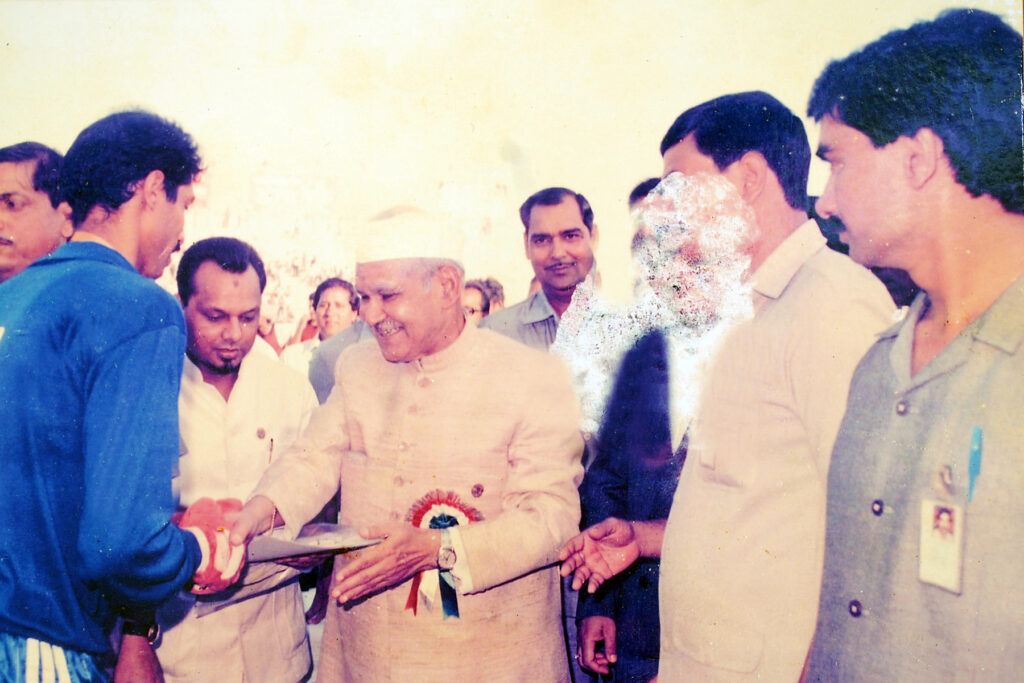

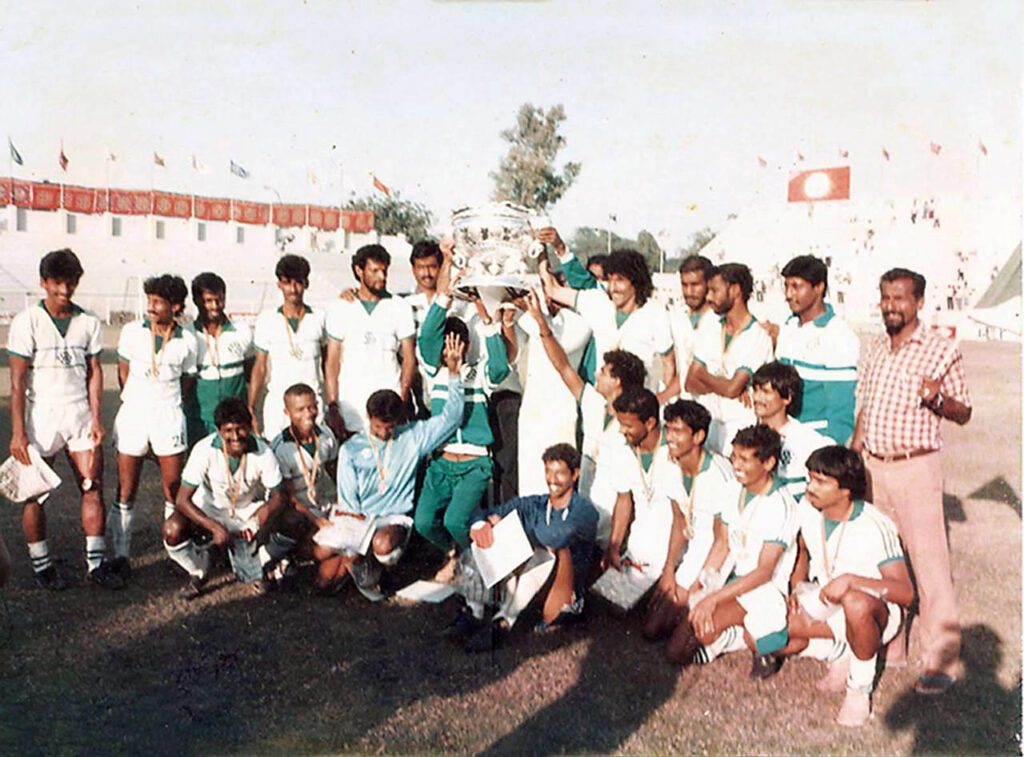
At that time, no coach was confident about his comeback. “I told my boss Mr. Sivanand Salgoacar that I wanted to play and I was fit. He said why would you want to take a risk? I convinced him by saying that if I don’t play; I know I will lose it all. If I succeed here, I will play the next two all-India tournaments. I want to prove myself. I will take the risk,” he added. Thus, he played one of the matches in the Asian Games in China. He continued to play for team India till 1986. Despite suffering from the major injury, he continued to play for his club—the Salgoacar—even after the Asian Games. In 1988 and 1989, the club—with Sankhwalkar a part of its team—had won the Federation Cup.
Besides the medical treatment and physiotherapy, what helped him overcome his injury were the inspiring stories of other sportspersons. He was inspired by Dennis Lillee’s incredible comeback from back injury. The Australian cricketer, Dennis Lillee had started off as a pace bowler. Later, he got injured and couldn’t play for more than 18 months. He had reworked his action completely and came back as a skillful bowler in the second half of his career. Lillee had broken Lance Gibbs’ world record of 309 Test wickets and finished his career with 355 dismissals from just 70 matches.
Sankhwalkar was also inspired by the comeback tale of a dancer, who was bedridden for about 6 months. “These stories gave a boost to my determination. I would only read books with positive content to gather strength during the recovery process,” recalled Sankhwalkar, adding that a sportsperson trying to recover from any sort of injury must listen to the step-by-step guidelines recommended by the doctor. And, the rest can be achieved with an optimistic mindset, he shares. “I worked hard post the injury. I took up swimming exercises. Also, I took up meditation to keep my mind deviated from the botheration arising out of the injury,” he recalled, emphasising that ‘mind is the strongest weapon.’
Hailing from Talegao, a small town near Goa’s capital Panjim, Sankhwalkar was introduced to soccer as young as five, courtesy the craze for football that ran through his family. Then, a scrawny boy, Sankhwalkar—who would often stand out in the crowd for his tall frame—started his soccer journey from home itself. “My father was a footballer during the 1940s. My elder brothers Gurudas and Vallabha were very good footballers. All of my seven brothers played football,” he shared. Sankhwalkar had apparently inherited his love for football from his father, a goalkeeper who played in dhoti.
But, how did he start his journey professionally? Sankhwalkar had never got any formal coaching during his formative years. As per reports, he was groomed by Remigio Pinto—his family doctor and a football buff, who would often train children from Talegao. Hence, Sankhwalkar learned the nitty-gritties of goalkeeping.
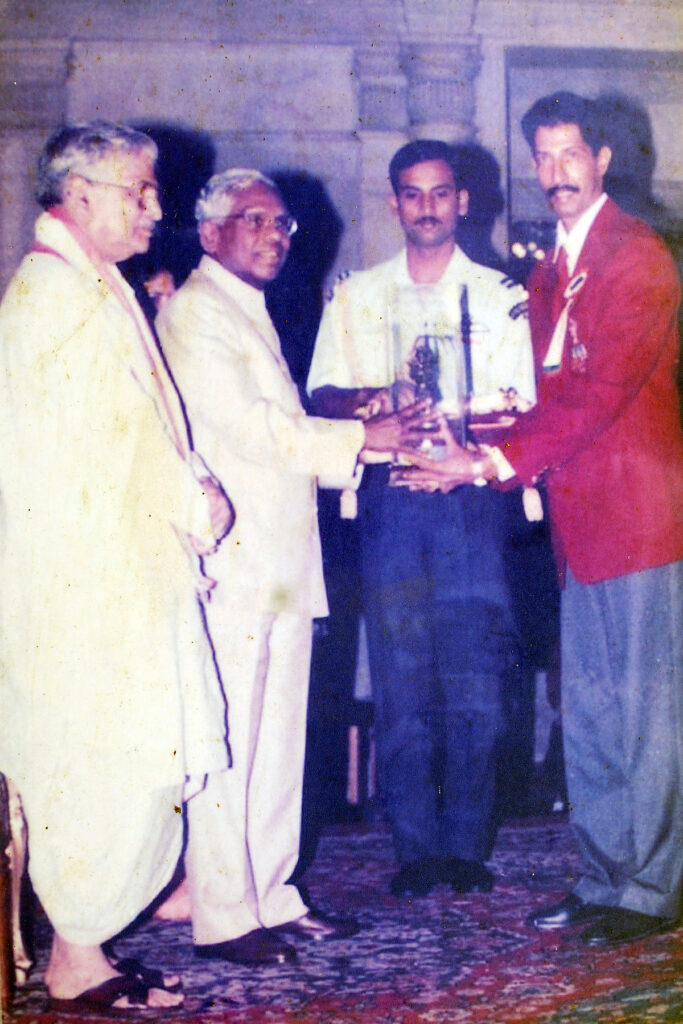
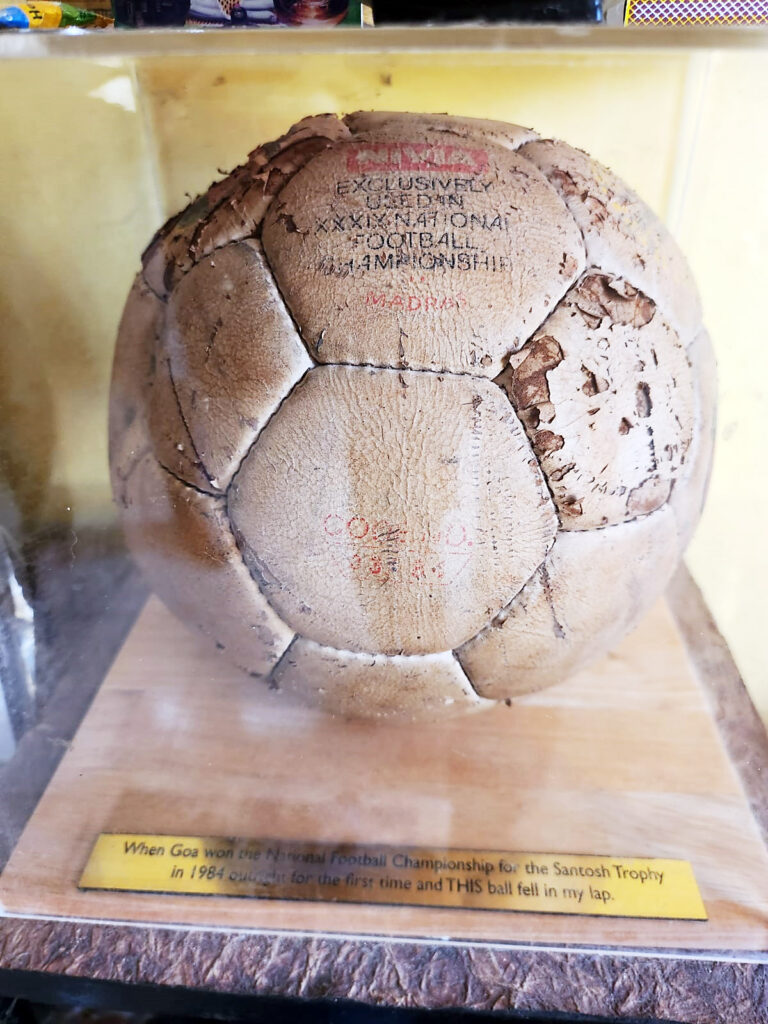
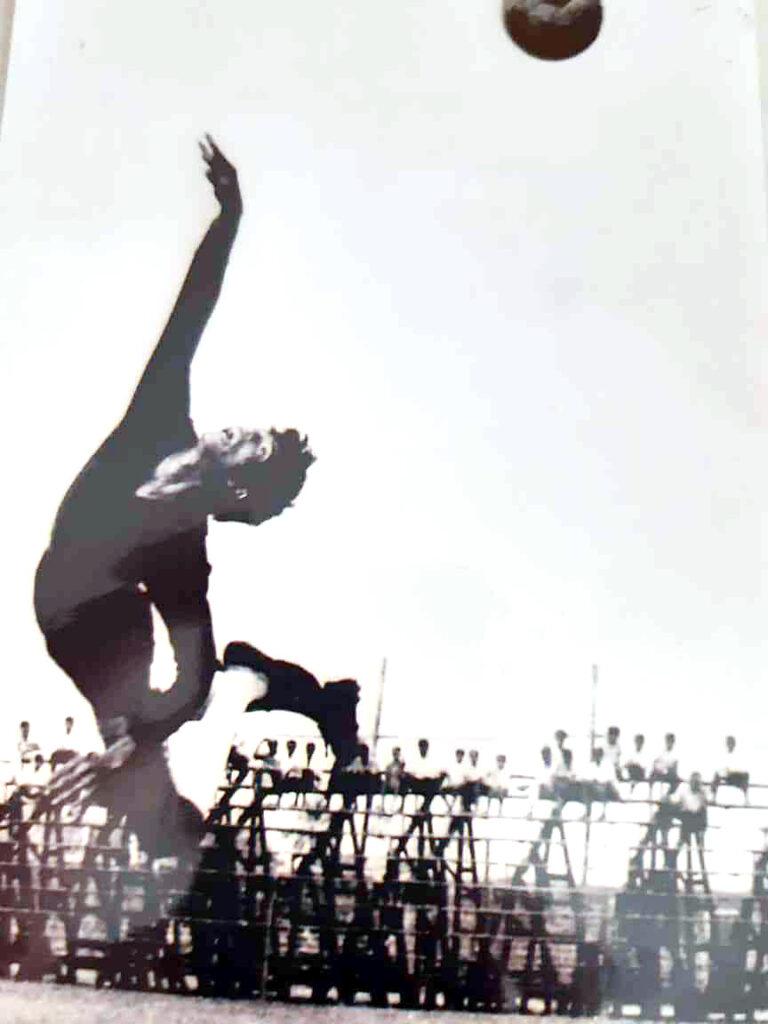
Early days
Interestingly, the first match Sankhwalkar ever played for a club came under bizarre circumstances, as reported by a digital news platform. He was barely 15 when his brother Vallabh, a striker for Panvel Sports Club, called him up on the recommendation of club Secretary Anthony Botelho who was in search of a goalkeeper for a friendly match. Sans professional training, the lanky footballer—that he was at 15—put on his school shorts, jersey and boots borrowed from his brother. His gears looked amateurish but his heart was filled with a pro-like enthusiasm. Sankhwalkar went to the field as a goalkeeper in the second half as Panvel trailed 2-1. Though Panvel lost the match, Sankhwalkar fetched praise—despite having to face the grumblings from a few senior players—for not letting the club’s scoreline worsen further. But, Botelho spotted the spark in Sankhwalkar and called him up for another crucial match the next weekend. “This time I had to face a strong team. Impressed with my performance, one of the priests came forward and asked Botelho to sign me as a player,” he recalled.

Change of plans
In 1973, Sankhwalkar— a science student— had considered quitting the sport to focus on academics. But with support from Botelho and his father, he continued his association with the sport. During this period, he was picked by Goa for the Santosh Trophy, which was once recognised as India’s top domestic competitions. The top Goan clubs had their eyes on him. Botelho and Panvel player Levino Dias advised the teenager to stay with the Panvel Sports Club rather than joining any other club. When Botelho offered him captaincy, Sankhwalkar could do nothing to turn down Panvel’s offer. Sankhwalkar soon steered the club to the Bandodkar Gold Trophy. He helped them bag their first major silverware. It was a parting gift from Sankhwalkar, who left Panvel the following season.
On his father’s recommendation, Sankhwalkar later signed the offer from Salgaocar Football Club and won the Goan top division in his first season. Sankhwalkar soon earned a call-up to the Indian senior national team in 1976 after signing for Salgaocar Football Club. He later captained the club and went on to become one of their longest-serving players. Though he had offers to join Kolkata clubs Mohun Bagan twice and Mohammedan Sporting, two of India’s biggest clubs back then, he chose loyalty over anything else.
National feat
He led Goa to back-to-back wins at the Santosh Trophy in 1983 and 1984. In fact, the goalkeeper finished the 1984 tournament without conceding a single goal – 576 minutes, a record that still stands. He began his international career at the Asian Football Confederation (AFC) Youth Championship in Kuwait in 1975 and was included in various tours with the senior national team before taking up captaincy at the 1983 Nehru Cup, 1986 Asian Games in Seoul and against Bochum XI, a German team that visited India in 1986.
From being a Goalkeeper to a Coach
After parting ways with Salgaocar Football Club in 1991, he joined the Sports Authority of Goa. The veteran goalkeeper plied his trade in the Goan top flight for Churchill Brothers (1991 to 1994) and later Anderson Mariners (1994-’95). After completion of his Asian Football Confederation (AFC) license courses, Sankhwalkar joined the Indian team as a goalkeeping coach between1997 and 2005. He worked with SAG for nearly 17 years before serving as mentor at Goa’s Sesa academy for over a decade. The veteran has now been appointed as Chairman of the Goa Football Development Association, a government body which oversees grassroots and player development in the state.
Accolades
1977 Bakshi Bahaddar Jivbadada Kerkar Award
1986 Goa state award
1996 He was selected as player of the decade
1998 Arjuna award
2022 Padma Shri Award

